| |
Speakers
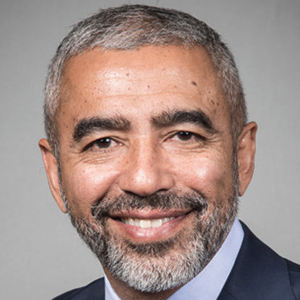 Salman Azhar, MD Salman Azhar, MD
Director of Stroke Services
Northwell Health Physician Partners
Telestroke
November 14 | 12:30pm - 1:00pm
Dr. Azhar received his undergraduate degree from Johns Hopkins University and completed his doctorate in medicine at the Virginia Commonwealth University (VCU), Richmond, Virginia. His postgraduate residency training was undertaken first at VCU and completed at Mount Sinai Hospital, followed by a fellowship in cerebrovascular disease at the National Institutes of Health.
Dr. Azhar is a Professor of Neurology at the Hofstra School of Medicine and is based at Lenox Hill Hospital as Regional Director of Stroke (Western Region) and as the System Director of Telestroke for Neurology. He is a diplomate of the American Board of Psychiatry and Neurology and serves as a member of the New York Department of Health’s stroke task force.
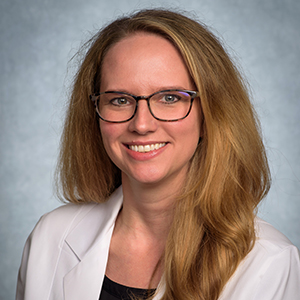 Nicole Bentley, MD Nicole Bentley, MD
Associate Professor
Board Certified Neurosurgeon
University of Alabama at Birmingham Neurosurgery
Creating an Excellent DBS Program
November 13 | 3:15pm - 4:00pm
Dr. Nicole Bentley is an associate professor and board-certified neurosurgeon at UAB Neurosurgery and specializes in deep brain stimulation, epilepsy surgery, and functional movement disorders. Dr. Bentley attended Medical College of Georgia, completed her residency and post-doctoral research at the University of Michigan, and completed a fellowship in functional neurosurgery at Emory University. Recently, Dr. Bentley received a NIH K23 grant award to fund research in cognitive dysfunction and Parkinson’s disease. Dr. Bentley lives in Birmingham, Alabama with her spouse and their three children.
 Dr. Jennifer L. DeWolfe Dr. Jennifer L. DeWolfe
Professor of Neurology
University of Alabama at Birmingham
Overview of a Level 4 Epilepsy Center and Parkinson's Certifications
November 13 | 1:00pm - 2:00pm
UAB Tour: Epilepsy Monitoring Unit (EMU)
November 13 | 4:00pm - 5:00pm
Dr. Jennifer L. DeWolfe is a neurologist in Birmingham, Alabama and is affiliated with multiple hospitals in the area. She is a scientist and professor at the University of Alabama at Birmingham Hospital School of Medicine. She received her medical degree from Chicago College of Osteopathic Medicine at Midwestern University and has been in practice for more than 20 years.
 Dan-Victor Giurgiutiu, MD Dan-Victor Giurgiutiu, MD
Stroke Neurologist and Neurointerventional Specialist
Medical College of Georgia at Augusta University
What's Next: The Future of Stroke Care
November 14th | 2:00pm - 3:00pm
Dr. Dan-Victor Giurgiutiu is a stroke neurologist and neurointerventional specialist who co-directs the Comprehensive Stroke Center at Augusta University. Originally trained at the Medical University of South Carolina, he went on to complete neurology residency at Harvard, followed by advanced fellowships in vascular and interventional neurology at the University of Pittsburgh Medical Center.
He’s passionate about improving acute stroke care, from the latest imaging tools to life-saving clot removal procedures, and has led numerous clinical trials in the field. When not wrangling catheters or mentoring the next generation of physicians, he’s been known to give his time to community health outreach and even lend a hand in EMS education. Today, he joins us to share his expertise, stories, and vision for the future of stroke treatment.
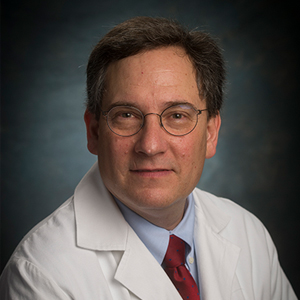 Toby I. Gropen, MD, FAHA Toby I. Gropen, MD, FAHA
James H. Halsey, Jr. MD, Professor of Neurology
Chief of the Division of Cerebrovascular Disease
Director of the Comprehensive Neurovascular and Stroke Center
University of Alabama at Birmingham
Overview of a Comprehensive Stroke Center
November 14 | 9:00pm - 10:00am
Stroke Panel Discussion
November 14 | 1:00pm - 2:00pm
Toby I. Gropen, MD, FAHA, is the James H. Halsey Jr., MD Professor of Neurology, Chief of the Division of Cerebrovascular Disease and the Director of the Comprehensive Neurovascular and Stroke Center at The University of Alabama at Birmingham. He previously served as the Director of Vascular Neurology at Ochsner Medical Center in New Orleans and the Chairman of Neurology and Director of the Stroke Center at Long Island College Hospital in Brooklyn. His research has focused on stroke systems of care and specifically emergency stroke care. He led the New York State Department of Health’s Stroke Center Designation Project in Brooklyn and Queens. He served as Chairman, Northeast Cerebrovascular Consortium which examined regional disparities in stroke care across the northeast and recommended strategies to improve stroke care through system and policy changes based on the stroke systems of care model. Currently, he is Principal Investigator of the StrokeBelt StrokeNet (UAB’s National Institute of Health’s StrokeNet Regional Coordinating Stroke Center) and Principal Investigator of “Stroke STAT”, a five-year study of the public health impact and implementation of a novel acute stroke care model throughout Alabama funded by the National Institute of Neurological Disorders and Stroke.
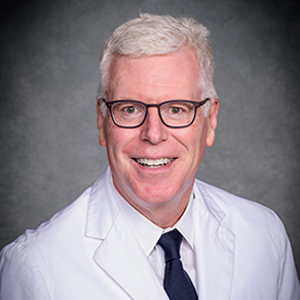 Mark R. Harrigan, MD Mark R. Harrigan, MD
Professor of Neurosurgery, Radiology, and Neurology
Neurosurgery Vice Chair for Clinical Operations
University of Alabama at Birmingham
Overview of a Comprehensive Stroke Center
November 14 | 9:00am - 10:00am
Stroke Panel Discussion
November 14 | 1:00pm - 2:00pm
Dr. Mark R. Harrigan grew up in Minnesota and received a B.S. degree in Economics from the University of Minnesota. He received an M.D. degree from the University of Washington in Seattle, Washington, in 1995.
Dr. Harrigan's clinical practice includes the operative and endovascular treatment of cerebrovascular disease, as well as general neurosurgery and neurosurgical critical care. His clinical and research interests focus on cerebrovascular disorders. He is the UAB Site Principal Investigator for five multicenter clinical studies. He is active in resident education and was a recipient of a Top Ten Award for Excellence in Resident Education from the Department of Radiology. He is also the co-author, with Dr. John Deveikis, of the Handbook of Cerebrovascular Disease and Neurointerventional Technique.
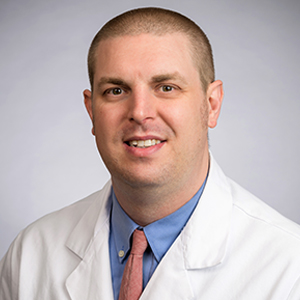
Marshal Holland, MD
Assistant Professor of Neurosurgery
University of Alabama at Birmingham
Team Approach to Movement Disorder Program
November 13 | 2:00pm - 3:00pm
Creating an Excellent DBS Program
November 13 | 3:15pm - 4:00pm
Dr. Marshall Holland is an Assistant Professor of Neurosurgery at the University of Alabama at Birmingham. He was born and raised in rural northern Illinois. He graduated magna cum laude from the University of Miami in Florida with a focus in neuroscience. Following this, he attended Southern Illinois University School of Medicine in Springfield, IL where he was elected to the Alpha Omega Alpha Honor Medical Society. Next, he underwent his residency training in neurosurgery at the University of Iowa where he also completed a Masters of Translational Biomedicine. Prior to joining the faculty at UAB, he completed fellowships in stereotactic and functional neurosurgery with Dr. Kelly Foote at the University of Florida and Dr. Kim Burchiel at Oregon Health and Science University.
Dr. Holland’s clinical interests span all aspects of functional neurosurgery including deep brain stimulation, neuromodulation/surgical treatment of pain, and the surgical treatment of epilepsy. His translational research is focused on investigating neuromodulation of the autonomic nervous system, with a particular interest in the pathophysiology and treatment of restless legs syndrome with spinal cord stimulation. His clinical research interests involve investigating emerging indications for and optimization of deep brain stimulation. When not at work, Marshall enjoys spending time with his wife, two children, and dog exploring the Birmingham area and keeping up with his favorite sports teams.
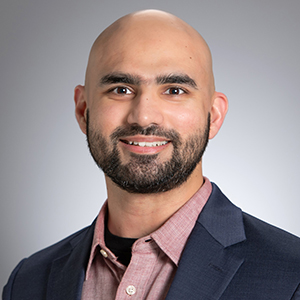 Adeel Ilyas, MD Adeel Ilyas, MD
Assistant Professor of Neurosurgery
University of Alabama at Birmingham
Team Approach to Movement Disorder Program
November 13 | 2:00pm - 3:00pm
Adeel Ilyas, MD is an assistant professor of neurosurgery at the University of Alabama at Birmingham (UAB) who specializes in epilepsy and functional neurosurgery. He completed his undergraduate degree in neuroscience and computer science at the University of Virginia (UVa). He then worked as a software engineer at TRAX LLC, developing optimized simulation code. Subsequently, he obtained his medical degree from the UVa and completed his residency in neurosurgery at UAB. During his residency, he also obtained a research fellowship at University of Texas Health Science Center at Houston (UTH). Following residency, Dr. Ilyas completed a fellowship in epilepsy and functional neurosurgery at UTH. Dr. Ilyas’ interests are in applying machine learning and signal processing techniques to improve patient outcomes in epilepsy.
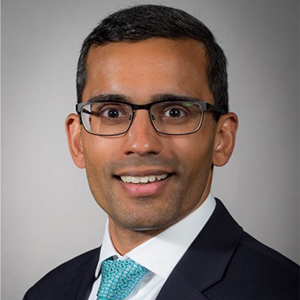 Jason Philip Jason Philip
Vice President, Neurosurgery Service Line
Northwell Health
Stroke Panel Discussion (Moderator)
November 14 | 1:00pm - 2:00pm
Jason Philip is Vice President of the Neurosurgery Service Line at Northwell Health. In partnership with the Chair of Neurosurgery, Jason leads business strategy for neurosurgery across the healthcare system.
Jason joined Northwell in January 2013. Prior to his current role, Jason served as Chief of Staff to Northwell Health’s CEO, Michael Dowling. Jason also held successive positions with the Emergency Medicine Service Line, most recently as Administrative Director for Emergency Medicine at South Shore University Hospital and Peconic Bay Medical Center. Early in his tenure, Jason completed Northwell’s Administrative Fellowship program.
Jason received his BS in Health Science from Stony Brook University and his MBA in Healthcare Service Management from Hofstra University. Jason is a board member of the Neurosurgery Executives’ Resource Value & Education Society (NERVES) and is the chair of the Education Committee.
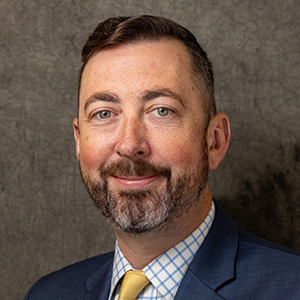 Jacob Rodman, ACMPE Jacob Rodman, ACMPE
Chief Executive Officer
Raleigh Neurosurgical Clinic, Inc.
Stroke Panel Discussion
November 14 | 1:00pm - 2:00pm
Jacob is the Chief Executive Officer for Raleigh Neurosurgical Clinic, Inc, a group that was established in 1954. Jacob has over 20 years of management experience encompassing leadership positions at every level. He is a past president and board member for the North Carolina Medical Group Managers Association (NCMGMA). Jacob has also served on several advisory committees and boards for United Healthcare of NC, BCBS of NC, the Town of Morrisville’s budget office, Medical Mutual Insurance Company and Wake Monarch Academy. Jacob currently serves on the board of directors and is the President for the Neurosurgery Executive Resource Value & Education Society (NERVES). Jacob is a board-certified medical practice executive by the American College of Medical Practice Executives (ACMPE). Jacob has presented both nationally and internationally on a variety of topics surrounding medical practice management and leadership.
 Cammie Shoemaker, DNP, MSN, ASC-BC, SCRN Cammie Shoemaker, DNP, MSN, ASC-BC, SCRN
Quality Improvement Manager
University of Alabama Medical Center
Overview of a Comprehensive Stroke Center
November 14 | 9:00am - 10:00am
Cammie Shoemaker earned her Doctor of Nursing Practice (DNP) from the University of Alabama at Birmingham and has specialized in neuroscience and stroke care for over three decades. She currently serves as the Quality Improvement Manager at the University of Alabama Medical Center, where she leads efforts to maintain compliance with Comprehensive Stroke Center and Advanced Spine Certification standards.
Throughout her career, Cammie has held progressive leadership roles, including Stroke Program Coordinator, Stroke Program Consultant, and Director of Neurology/Neurosurgery and Neurocritical Care Units. She has been a driving force behind stroke program development and has led multiple successful Joint Commission Disease-Specific Care (DSC) accreditations since 2004, significantly advancing stroke and neuroscience care across hospital systems. Since 2022, she has also served as a Stroke Program Reviewer for The Joint Commission.
Board certified as an Advanced Stroke Coordinator (ASC-BC) and Stroke Certified Registered Nurse (SCRN), Cammie is actively involved in several professional organizations, including the American Heart Association/American Stroke Association (AHA/ASA), the American Association of Neuroscience Nurses (AANN), and the Association of Neurovascular Clinicians (ANVC). She previously served as President of the Alabama Stroke Alliance of Professionals. Her leadership has been recognized with numerous honors, including Nurse Leader of the Year and multiple AHA/ASA performance achievement awards.
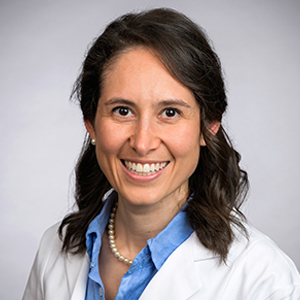 Jasmine Thum, MD, MS Jasmine Thum, MD, MS
Assistant Professor of Neurosurgery
University of Alabama at Birmingham
Creating an Excellent DBS Program
November 13 | 3:15pm - 4:00pm
Jasmine Thum, MD,MS, is an assistant professor in the Department of Neurosurgery at the University of Alabama at Birmingham. Dr. Thum received her bachelor's degree in biomedical engineering and master's degree in neuroengineering at the University of Southern California (USC) in 2012. She earned her medical degree from Harvard Medical School/Massachusetts Institute of Technology (MIT)Health Sciences and Technology Program (HST) in 2016. Dr. Thum completed her neurosurgical residency at the University of California, Los Angeles (UCLA). She joined UAB from the University of California, San Francisco (UCSF), where she recently completed a neurosurgical fellowship training with top surgeons in the country for epilepsy surgery and functional neurosurgery (deep brain stimulation). Prior to that she completed a separate fellowship at Massachusetts General Hospital in peripheral nerve reconstruction and brachial plexus repair. Dr. Thum serves as a surgeon-scientist. Clinically, she specializes in epilepsy and functional neurosurgery and peripheral nerve surgery for limb reanimation, and brachial plexus repair. Her neurophysiology research focuses on understanding networks for consciousness and neuromodulation for epileptic loss of consciousness, as well as new techniques for reanimating paralyzed arms.
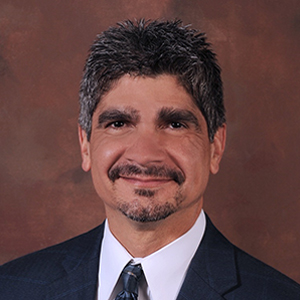 Fernando L. Vale, M.D. Fernando L. Vale, M.D.
Professor & Marshall B. Allen, Jr., M.D. Distinguished Chair
Chair, Department of Neurosurgery
Surgical Director, Functional and Epilepsy Section
Medical College of Georgia
Team Approach to Movement Disorder Program
November 13 | 2:00pm - 3:00pm
Dr. Vale is a 1991 graduate of the University of Puerto Rico - School of Medicine in San Juan, PR, and completed neurosurgery training at the University of Alabama at Birmingham (UAB) in 1997. He joined the University of South Florida (USF) faculty that year as co-surgical director of the Parkinson’s disease Surgery Program and surgical director of the Comprehensive Epilepsy Program at Tampa General Hospital/USF. He was vice-chair of the Department of Neurosurgery and Program Director of the Residency program at the University of South Florida - Morsani College of Medicine until his departure from Tampa, FL, in January/2019.
His work as a neurosurgeon has focused on investigating the effects of medically resistant epilepsy, movement disorder and brain surgery on cognitive function and performance. New therapies for the treatment of intractable epilepsy, movement disorder and other neurodegenerative diseases require the need for improved safety and efficacy. Understanding the different brain networks involved in disease generation and cognitive function are imperative in the management of any brain pathology. In addition, as a Director of the Epilepsy and Functional Division, he has extensive experience with implanted neurologic devices, including invasive electrodes, deep brain stimulation and vagus nerve stimulator. Our team has a surgically oriented level IV referral-epilepsy center. He is the Chairman of the Department of Neurosurgery at WellStar-MCG Health formerly known as Augusta University Medical Center (AUMC). AUMC is the area’s only level I trauma center in the Central Savannah Region of Georgia and South Carolina and has one of the busiest emergency room in the state.
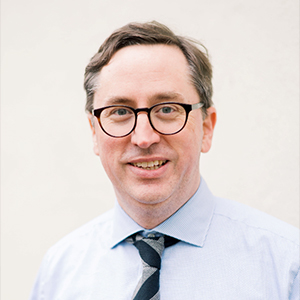 Harrison Walker, MD Harrison Walker, MD
Professor of Neurology – Department of Neurology
Deputy Vice Chair for Research – Department of Neurosurgery
Susan and Rodney Barstein Endowed Faculty Scholar
University of Alabama at Birmingham
Overview of a Level 4 Epilepsy Center and Parkinson's Certifications
November 13 | 1:00pm - 2:00pm
Originally from Starkville, Mississippi, Dr. Walker graduated Phi Beta Kappa and Summa Cum Laude from Birmingham-Southern College in 1997 with a BA in Music. He attended medical school at the University of Alabama at Birmingham, where he participated in the Howard Hughes Medical Institute Research Scholars Program at the National Institutes of Health in Bethesda, Maryland. Following medical school, Dr. Walker pursued his neurology residency and movement disorders fellowship training at the University of Alabama at Birmingham.
Research/Clinical Interest
Deep brain stimulation (DBS) is more effective than medication for motor symptoms of Parkinson's disease, dystonia, and essential tremor, yet its therapeutic mechanism is unknown. Dr. Walker's lab focuses on using emerging technologies to optimize deep brain stimulation therapy integrating electrophysiology, neuroimaging, and behavioral measurement in patients with movement disorders. Our mission is to better understand how the therapeutic mechanism of DBS relates to clinical outcomes and to apply these findings to guide innovative new approaches to therapy.
 Meredith Wells Meredith Wells
Vice President, Neuroscience Service Line
Ascension Texas
Stroke Panel Discussion
November 14 | 1:00pm - 2:00pm
Meredith Wells is the vice president for neuroscience service line at Ascension Texas as well as the Administrative Director for the Neuroscience Service Line for Ascension National. She also serves as a University Affiliate with Dell Medical School at the University of Texas at Austin. Ascension is one of the nation’s leading non-profit and Catholic health systems, with a Mission of delivering compassionate, personalized care to all, with special attention to those most vulnerable. Across 16 states and the District of Columbia, Ascension’s network encompasses approximately 99,000 associates, 23,000 aligned providers, and 151 facilities.
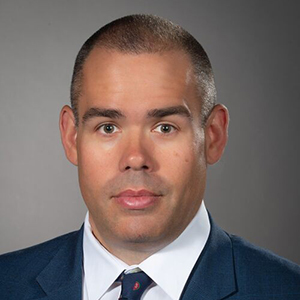 Edward Wright Edward Wright
Vice President of Neurology
Northwell Health
Telestroke
November 14th | 12:30pm - 1:00pm
Edward Wright's two-decade journey at Northwell Health reflects his deep commitment to patient care and insightful leadership. Joining Northwell Health in 2003, he steadily advanced, applying his keen financial and administrative skills to the Department of Neurology in 2014. He quickly rose through the ranks, serving as Administrative Director and Senior Administrative Director before being appointed Assistant Vice President in 2020, a period during which he skillfully navigated the complexities of the COVID-19 pandemic. Since becoming Vice President in 2024, and notably over the past decade, Ed has dramatically expanded Northwell's neurology service line, broadening access to care by recruiting over 50 neurologists and numerous advanced clinical practitioners.
Beyond these impressive operational successes, Edward is highly admired for his approachable and inclusive leadership style, which has fostered a welcoming departmental environment where team members thrive and often return to work under his guidance. His Master of Public Health Administration from Long Island University complements his natural empathy and unwavering focus on the human element of healthcare. With expertise spanning neurology operations, revenue and finance management, and strong relationships with providers and support staff, Edward's profound commitment and comprehensive skill set position him as a pivotal figure in advancing neurological care at Northwell Health.
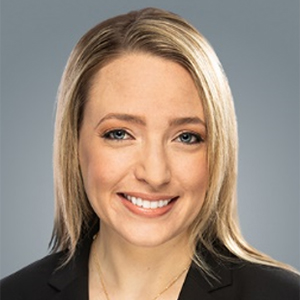 Kate Zentner Kate Zentner
Associate Principal
Sg2
Stroke Strategy Overview
November 14 | 8:00am - 8:45am
As part of the Intelligence team, Kate leads the development and delivery of Sg2’s neurosciences, spine and orthopedics offerings, working closely with clients to provide comprehensive research- and analytics-driven strategic intelligence.
In her current role, she has contributed to projects including the annual development of Sg2’s Impact of Change® forecast, numerous white papers and service line–focused consulting engagements. She has been an invited speaker at national meetings for organizations such as the Neurosurgery Executives’ Resource Value and Education Society and the Society of Vascular and Interventional Neurology as well as at Medtronic’s Neuroscience Healthcare Executive Summit. She regularly speaks at planning retreats, web seminars and other events on trends related to the neurosciences and spine landscape, evolution of stroke care, and more. Previously, Kate supported Sg2’s behavioral health intelligence projects and publications on a range of enterprise strategy topics.
|
|